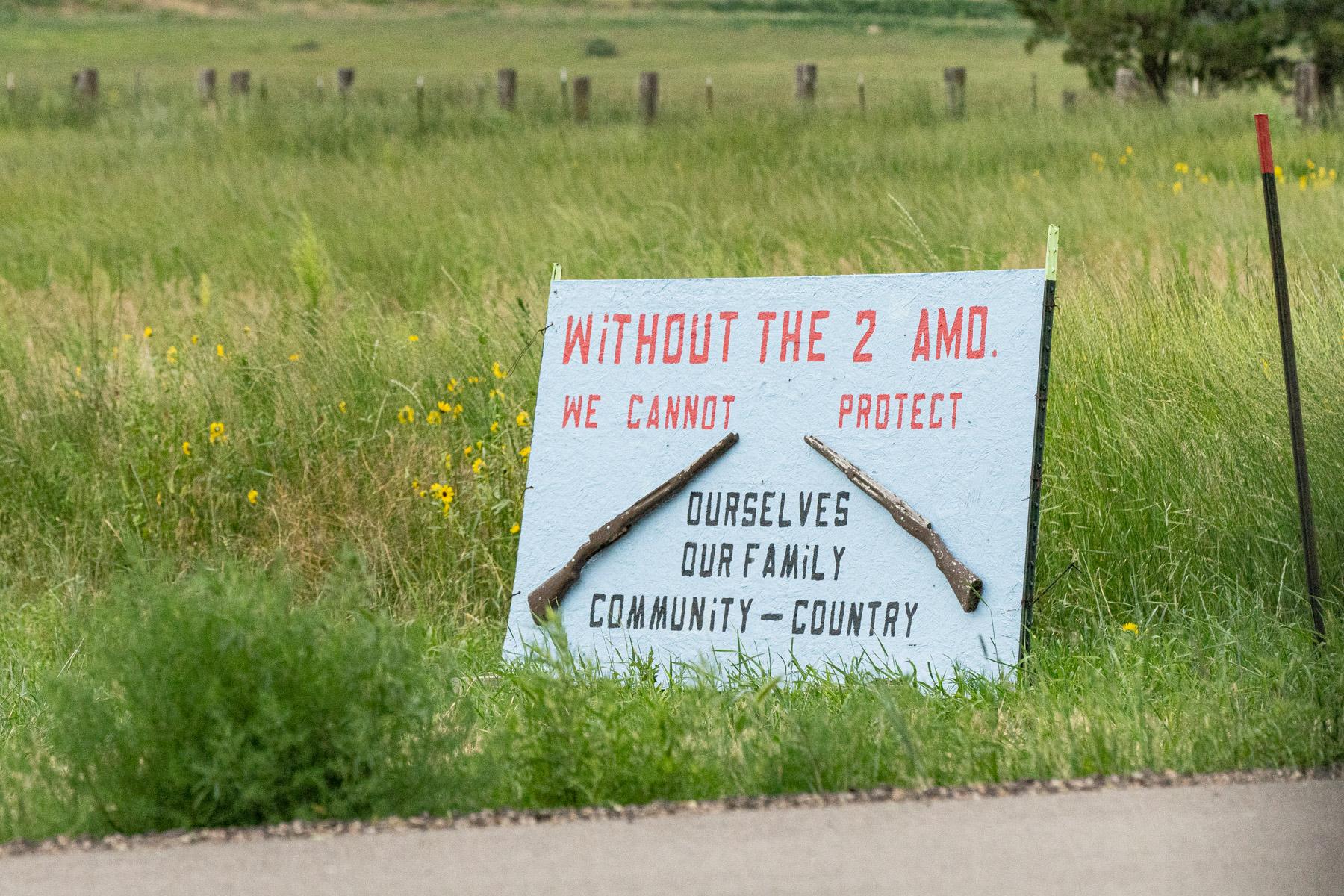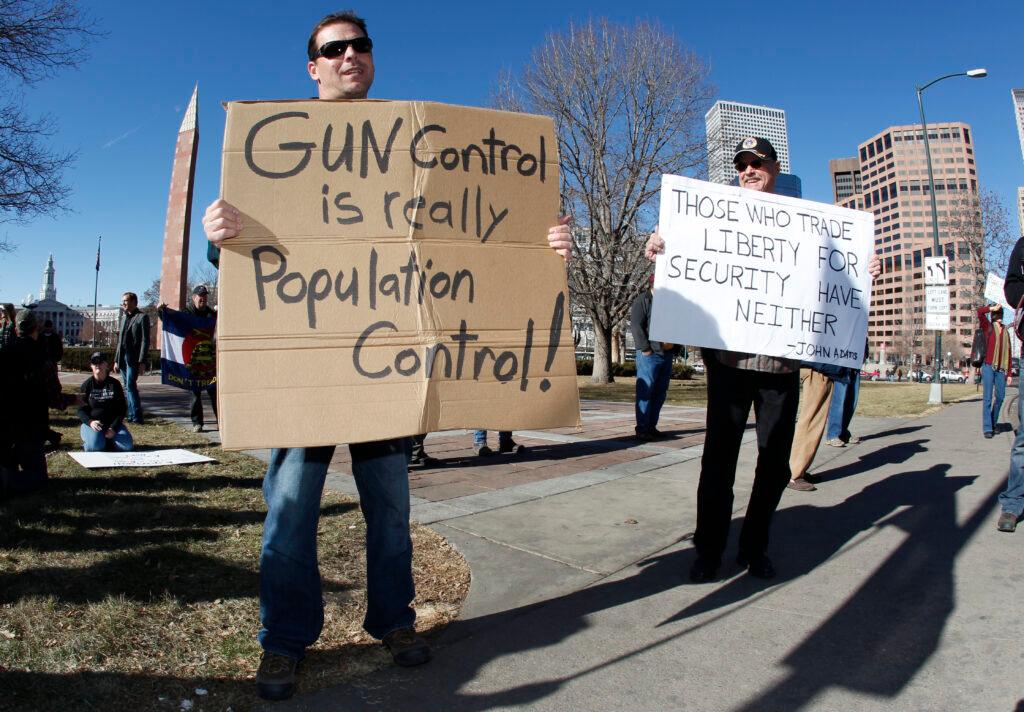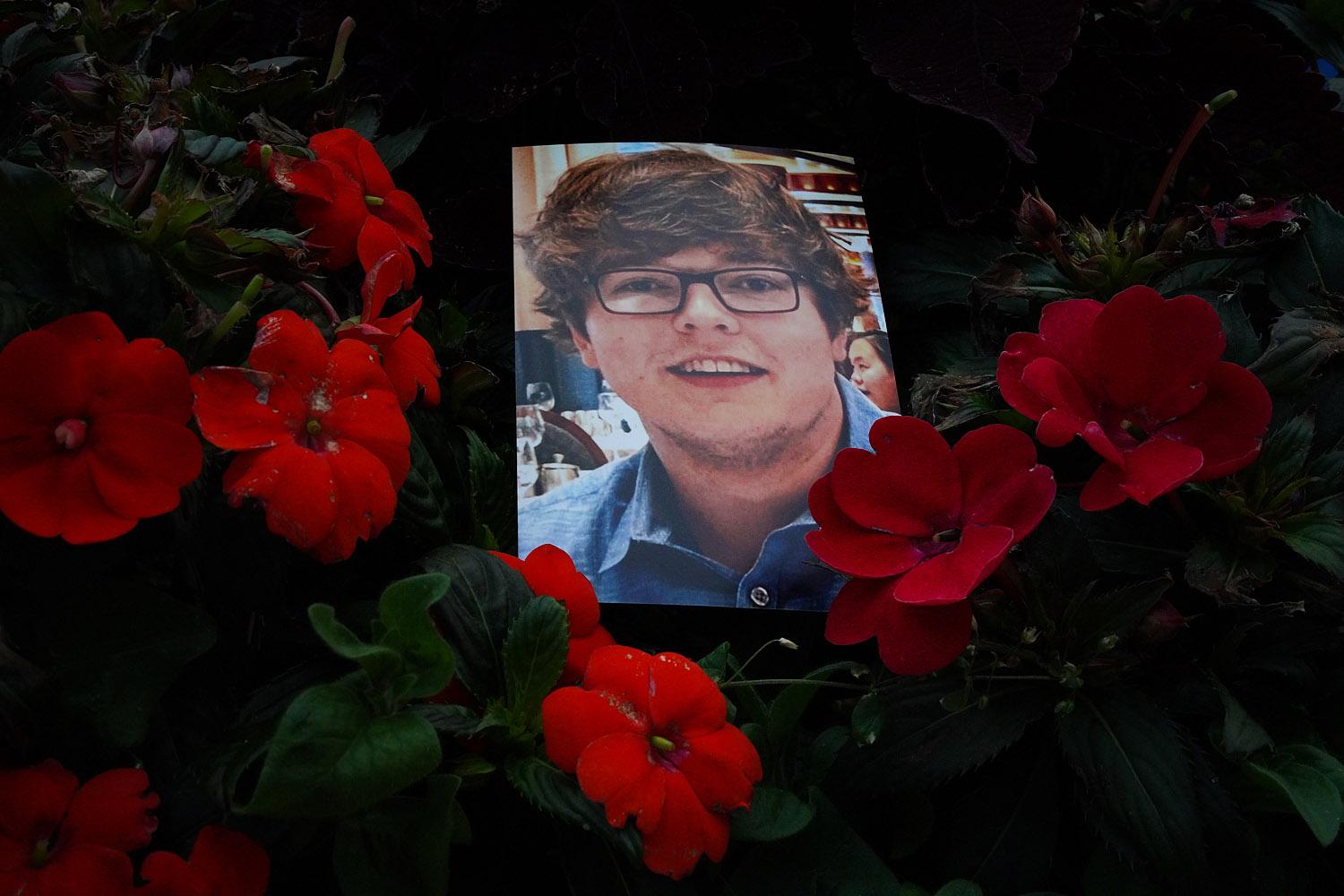
Just a decade ago, gun control debates at the state capitol have come with high drama — long days of passionate testimony and loud protests.
But this year, as the statehouse's majority Democrats pushed through yet another slate of tougher gun laws, the hearings were relatively quiet, and the opponents who came to testify were fewer than they’ve ever been in years past.
“We knew that we didn't have the votes,” said Taylor Rhodes, the head of the gun rights advocacy group Rocky Mountain Gun Owners.
Rhodes said he didn’t monitor the bills’ progress or lobby lawmakers at the state capitol on a daily basis like he has in past years. And while he did organize a grassroots effort for people to call and email their representatives, he didn’t encourage members of his organization to show up in droves to testify and put pressure on lawmakers.
But that doesn’t mean Rhodes is in any way resigned to letting these policies go into effect. In fact, his group may be on the verge of its biggest victories ever — not at the Capitol, but in the courts.
“I made a promise to my members that I was going to sue as soon as these went into law. I don't think that they took it as literal as I meant it. Because of course, we did sue before the ink was dry on the governor's desk.”
After years of political and policy setbacks, groups like RMGO see the courts as a new path forward for gun rights in Colorado, thanks to the U.S. Supreme Court’s Bruen decision last year. The 6-3 ruling struck down New York's century-old public carry licensing law, and set a new constitutional standard all state and federal gun laws must meet.
“[The] government must demonstrate that the regulation is consistent with this Nation’s historical tradition of firearm regulation,” wrote Justice Clarence Thomas in the decision. “Only if a firearm regulation is consistent with this Nation’s historical tradition may a court conclude that the individual’s conduct falls outside the Second Amendment’s ‘unqualified command.’”
For Rhodes and other Second Amendment advocates, the ruling opened up a promising new avenue to fight against gun laws.
“That really changes the complete trajectory of how gun laws can be litigated and how they can be enacted,” said Rhodes.
That new standard has already had an impact in Colorado. In response to an RMGO lawsuit, U.S. District Court Chief Judge Philip A. Brimmer blocked a new law raising the purchase age for all firearms to 21 on the day it was set to take effect. The policy remains on hold while the case makes its way through the courts.
In deciding to put a hold on the law, Brimmer wrote, “without any evidence of historic analogues from the time the Second Amendment was ratified, later history cannot overcome the text of the Second Amendment by providing an inconsistent definition.”

A shifting national standard
Before the Bruen decision, states could argue their laws were carefully targeted toward a specific goal — for instance, the protection of public health — that justified restricting the public’s right to bear arms.
The courts “would use a kind of balancing test to figure out whether or not they thought that the restriction was carefully enough tailored in order to serve some important government purpose,” said Timothy Lytton, a professor at Georgia State University College of Law who has studied Second Amendment litigation.
But with Bruen, the Supreme Court has opened the door for legal challenges to even decades old gun laws.
“We are talking about dozens of cases across the country that deal with everything from minimum age requirements, to restrictions on semi-automatic weapons… to restrictions on the sale of weapons to people who are under restraining orders for domestic violence,” Lytton said.
That final example is at the heart of a Texas case that the Supreme Court has agreed to hear this fall. Its ruling next year could offer more guidance on how lower courts should implement this new ‘historical precedent’ standard.
Until there’s more clarity, federal judges are approaching these questions in a range of ways, with some leaning toward upholding restrictions on gun ownership and others — including in the Colorado case — signaling that these laws may be in trouble.
Lytton expects many of these cases are going to have to percolate to the Supreme Court for further clarification.
Even as they joined the majority decision on Bruen, Chief Justice John Roberts and Justice Brett Kavanaugh reiterated that, “[p]roperly interpreted, the Second Amendment allows a “variety” of gun regulations” and that states “may continue to” enforce requirements such as background checks, mental health records checks, and training requirements for people who want to carry a handgun for self defense.
In Colorado, Gov. Polis’ administration argued that the new 21-to-purchase gun law does have a historical precedent, highlighting examples from English common law, as well as rules and laws from the early days of the country about gun possession by college students and people who refused to swear allegiance to the United States.
But Judge Brimmer wasn’t convinced, concluding that Colorado’s law “likely causes a violation of the Individual Plaintiffs’ individual constitutional rights,” resulting in “irreparable injury,” and that the precedents cited were not close enough in time to the founding of the country to pass the Bruen test.
“It’s obvious the court is not on our side on a whole host of issues,” said Democratic Rep. Meg Froelich of Denver, co-chair of the legislature’s Gun Violence Prevention Caucus. But she said advocates for stricter gun laws at the statehouse aren’t going to slow down, in spite of legal challenges from Second Amendment advocates.
Lawsuits are “where they’re putting their money and efforts, so I don’t imagine it’s going to be smooth sailing,” Froelich said.
State lawmakers are still working on ideas for the next legislative session, which could include trying to bring back a proposal to ban assault weapons. That measure failed in its first committee earlier this year. Democrats have also discussed requiring the registration of firearms.
Many reform advocates say action on guns needs to be taken at the federal level, not piecemeal by the states. But tougher gun laws are a nonstarter in the Republican-controlled House.
In August, at a gun violence prevention roundtable at CU Boulder, the top Democrat in the U.S. House of Representatives called for “righteous intensity” in combating gun violence.
“We have to find a path forward to confront the gun violence epidemic that has hit you here in this community hard,” said Minority Leader Rep. Hakeem Jeffries. “It's a national problem. And so we need a national solution.”
At the state level, Colorado is considered somewhat of a policy bright spot by reform advocates. While Democrats avoided the issue for years after a bruising fight to pass new laws in 2013, recent sessions have seen more new gun laws than at any time in memory.
Eileen McCarron is a co-founder of Colorado Ceasefire, a non-profit that advocates for stricter gun laws. She said since the organization began in 2000, Colorado has enacted 23 laws and stopped over a hundred “bad bills from loosening gun laws.”
In addition to the purchase age law, the state expanded the scope of Extreme Risk Protection Orders this year; the court orders are used to temporarily remove someone’s firearms if they pose a risk to themselves or others. Lawmakers also passed a three-day waiting period for firearm purchases.
“We're finding that some of the laws we've just enacted in the last few years are being held up for lawsuits. With regard to the Supreme Court, we've got to maybe change some minds on the court, which is a really difficult process, and change people on that court,” said McCarron.
Rocky Mountain Gun Owners has several other lawsuits in the works currently, including one to try to block the new waiting period law. Rhodes said the organization is just waiting for the law to go into effect to sue. For other cases, they’re still seeking plaintiffs with standing to sue.
CPR’s Andrew Kenney contributed to this story.









